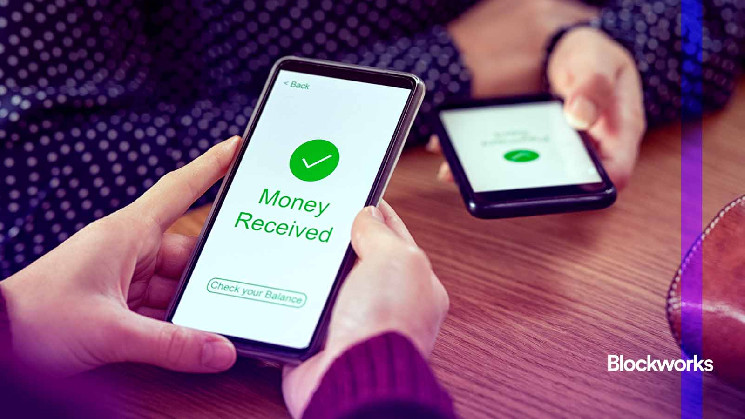Sling Money, a global peer-to-peer payments app leveraging stablecoins and Solana, has launched for users with US bank accounts, the startup announced this morning.
The app was conceived as a global equivalent to Venmo that uses the Solana network and Paxos’ USDP stablecoin to move money around instantly for low fees. The move comes as the crypto industry as a whole seems emboldened operating in the US following Donald Trump’s presidential election win last week.
Sling Money was founded in 2022 by Mike Hudack, who previously was chief product officer at the UK-based neobank Monzo. I spoke with Hudack back in August, and he said he became interested in building a global Venmo with crypto rails after sending crypto from London to a friend in San Francisco while investing in a Montana-based DAO. The KYC protocol and wallet onboarding was onerous, but the payment went through almost instantly, and Hudack realized he’d hit on something useful.
Since then, Sling Money has deployed in more than 75 countries, which now includes the US. By using stablecoins in tandem with Solana, which charges a fraction of a cent in transaction fees, Sling Money is very efficient, at least if you put aside the question of on- and off-ramping funds. It also plans to make use of RTP and FedNow, which are faster payments networks developed by banks and the Federal Reserve.
Sling Money has raised $20 million in seed and Series A funding, but its cap table doesn’t have typical crypto names on it: Union Square Ventures led its Series A in August, and Ribbit Capital and Slow Ventures are also investors. USV does a good number of crypto deals — it notably invested in Coinbase — but it is more of a generalist tech outfit. The same can be said for Ribbit and Slow. This is all to say that Sling Money isn’t really styled as a crypto app, and it doesn’t feel like one when you use it for peer-to-peer payments.
“It’s not necessarily a crypto product or a fiat product. It’s a payments product,” Hudack told me in August.
Venmo, the PayPal-owned payment platform with tens of millions of accounts in the United States, is the incumbent that Sling Money will have to chase. Like Venmo, Sling charges no transfer fees.
In an email, Hudack said he plans to pry away Venmo’s market share by starting “where Venmo isn’t” — that is, through international payments. Hudack said the team plans to follow WhatsApp’s growth model by building a “critical mass” of users for its international offering before convincing them that its product is good for use at home, too.
Hudack added that Sling Money’s bank transfers are faster than Venmo’s, and it sees a potential opportunity to undercut the 1.5-3% that Venmo charges for instant bank withdrawals.
Ben Mills, who is a Solana ecosystem founder who previously headed up product at Venmo, told me on the Lightspeed podcast that despite all its users, Venmo was not profitable. The legacy money transfer system is riddled with expenses that Venmo abstracts away, but Mills compared this to “putting lipstick on a pig.” With cheap and instant transfers facilitated on blockchain rails, Sling Money could ditch some of these expenses altogether.
“As a society we’ve spent the last ~25 years connecting the world through media,” Hudack said. “You can stream video from any point on earth to any other point on earth, you can text anyone in the world, you can email, you can have a voice call with anyone on the planet. All for free. We’ve got the technology now to connect the entire world financially and we’re going to do it.”
Read the full article here

